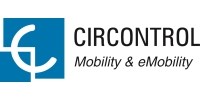
Countries in the Nordic region have always been pioneers and leaders in Electric Vehicle adoption, we’ve known that for years. International Energy Agency Nordic EV Outlook 2018 helps us to know more details of the situation and analyze which facts have been a key for electric mobility success.
The stock of Electric Vehicles has been expanding steadily since 2010 in the Nordic region, reaching almost 250,000 cars by the end of 2017. In 2017 EV car sales reached 90,000, up 57% from the previous year breaking a new record in absolute terms. EVs market share in the Nordic region is 10,6% and accounts for 8% of Electric Vehicles worldwide. With these figures, Nordic countries become the third-largest electric car market by sales volume in the world, after China and the United States.
Electric Vehicles have an important presence in all of the Nordic region, but market penetration is not the same in all countries. The prominent leader is Norway where electric car sales are at 39%, the highest rate in the world. One out of every 16 cars on Norwegian roads is electrical, far above the regional average that’s one out of 50. After Norway comes Sweden and on the third position, there’s Sweden followed by Finland. Denmark differs from its neighbors. It is the country with fewer sales in 2017 and a significant decline since 2015. This is attributable to erratic policies that undermined the confidence of customers that were thinking about electric car adoption.
EVs are here to stay and policies driven by Nordic countries point in that direction. It is estimated that in 2030 there will be 4 million electric cars in this region with Norway and Sweden leading this growth. This will reduce emissions by 40% compared to the ones produced if the same number of cars were run by fossil fuels. Norway also plans to sale only zero-emission vehicles by 2025.

What can we learn from Nordic Countries?
Looking at data of electric mobility in the Nordic region we could simply be jealous but analyzing how they got there and what we can learn from their experience would be much more useful.
A key factor for the introduction and extension of EV in the Nordic region is policy support for electric mobility. In these countries there have been several policies such as taxes differentiated based on vehicle’s environmental performance, reduce the purchase price by reducing taxes or giving EV drivers some advantages such as free parking. These policies may guide consumer’s choice to a BEV or a PHEV.
This report also shows that technology deployment is required in this context and it is likely to require a progressive transition from economic incentives for electric vehicles purchases towards regulatory measures that de-risks equipment manufacturers’ investment in technologies and foster cost reductions.
Many countries are introducing these policies and there is one thing that they should have in mind. There should be a balance between ambition and realism, that is, they must be able to be maintained over time. In Norway policies supporting electric mobility have been very stable and now is the leading country. In Denmark, instead, the discrepancy between initial announcements and following adjustments is seen as one of the factors that harmed EV sales in this country where they have declined since 2015 becoming the last of the Nordic Countries in electric mobility.
Fleets can also play an important role in electric mobility uptake. The high utilization rates in car fleets together with lower maintenance costs of EVs make these vehicles a good choice for fleets. Finland, for example, has implemented legislation that aims to make this country leader in mobility as a service, meaning the implementation of car rental fleets that replace private vehicles. For these initiatives to be successful, it is necessary to offer a reliable, affordable and safe alternative to private cars and EVs can offer all this as well as contributing to a reduction in the emissions of polluting gases.
About Circontrol 
Circontrol is a company founded in 1997 with headquarters in Viladecavalls (Barcelona). Its parking division designs and manufacture a global solution for efficient parking (guidance system, LED Lighting, energetic efficiency). Its emobility division manufactures a wide range of EV charging solutions that covers all market needs: domestic charge, slow charge (AC) and quick charge (DC).
Circontrol has a strong presence in the international market, where an 80% of its sales are allocated. Nowadays you can find Circontrol solutions in 52 countries with 30.000 charging points and 400.000 parking spaces managed with CirPark systems. Service is also very important for Circontrol, this is the reason why bet on a qualified aftersales service and a constant training for Circontrol partners are in company’s DNA.








